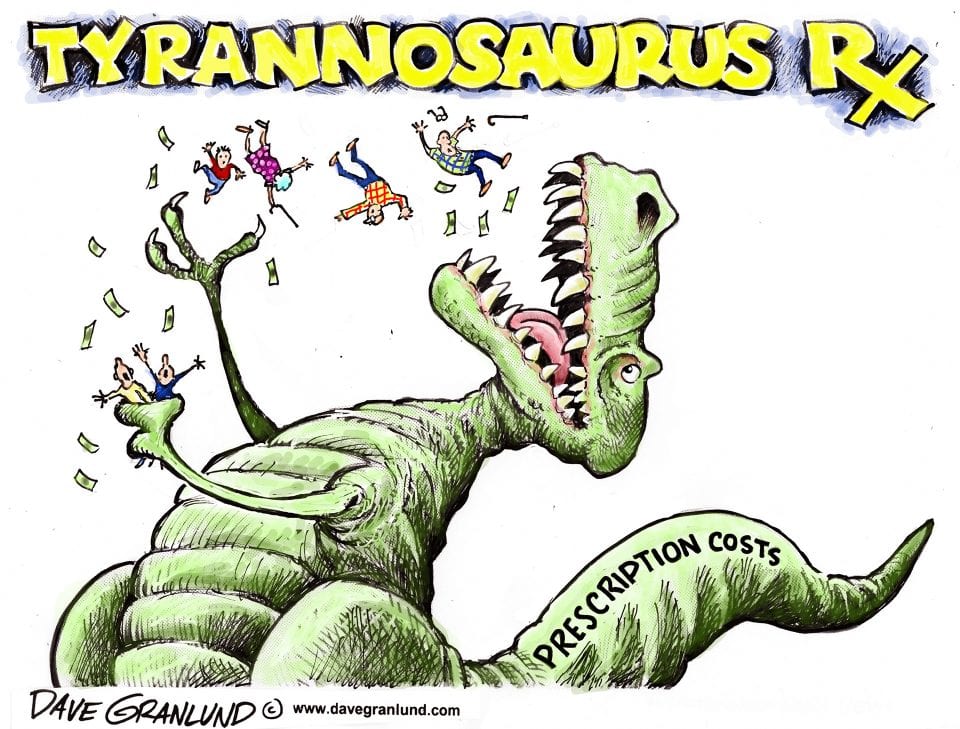BY DAVID PERRYMAN
 In 2017 there were approximately 464 independent community pharmacies in Oklahoma. Today there are fewer. I know that because one community in the rural house district that I represent lost its pharmacy last year. There were six and there are now five. That represents a decrease of over 16% in one house district alone.
In 2017 there were approximately 464 independent community pharmacies in Oklahoma. Today there are fewer. I know that because one community in the rural house district that I represent lost its pharmacy last year. There were six and there are now five. That represents a decrease of over 16% in one house district alone.
Some would say that businesses closing in rural Oklahoma are simply a way of life and a sign of the times. However, when a country drug store that has existed for generations as one of the primary businesses in a community closes, the severity of the impact on the town begs answers as to why.
Whether a drug store sells gifts, dry goods, or any of a miscellany of non-pharmaceuticals or even if it houses a fountain or snack bar, the driving force behind its existence and the primary generator of foot traffic is the filling of prescription drugs and other pharmaceuticals.
Of course, this is America and our economic system is based on concepts of supply and demand and theoretically based on the premise that well managed businesses that compete in the marketplace will succeed while others will fall by the wayside.
However, underlying those concepts are assumptions of fairness and equality. That is, an assumption that retailers have access to wholesale markets, pricing structures and incentives that are non-discriminatory and do not undermine a retailers ability to compete.
For years, Oklahoma’s community pharmacists have sought more transparency in the wholesale price that they pay and the reimbursements that they receive. While this is a problem that is limited to Oklahoma retailers, Oklahoma’s elected officials, including the legislature, the governor and the state’s Insurance Commissioners have failed to level the playing field, to the detriment of locally owned pharmacies.
As a result, the cost of medications for both small town Oklahoma pharmacies and the citizens they serve continues to skyrocket as out-of-state Pharmacy Benefit Manager [PBM] corporations make multibillion-dollar profits. PBM corporations continue to squeeze local pharmacies by inequitable drug pricing and a reimbursement process that favors certain large pharmacy chains often owned by the same parent corporation as the PBM itself.
Each time an attempt is made to require the mega-corporations to allow local pharmacies to purchase products at the same price as the favored corporate drug retailers, the PBM’s and their lobbyists threaten that the action will make drug prices skyrocket. Newsflash … inaction has not resulted in any price decreases.
PBMs continue to alter pharmacy contract terms, suppress reimbursement rates to community pharmacies and redefine what pricing benchmarks are utilized to reimburse pharmacies for their services. This session Oklahoma community pharmacists are back at the state Capitol respectfully requesting support for HB 2632 and SB 841. These bills take needed steps to ensure a transparent and sustainable medication delivery system that is not tilted in favor of mega-corporations and against our local pharmacies.
Time and again these out-of-state PBMs oppose small, business-friendly legislation in Oklahoma, with their claims that any transparency will result in cost increases to the system. When these baseless scare tactics prove to be successful the only result is that Oklahoma small businesses make less, the cost of medication for patients increases, yet the PBMs continue to record multi-billion dollar profits.
The result is invariably the closing of community pharmacies that are essential to Oklahoma’s economy. When the playing field is level, community pharmacies and their excellent customer service with a personal touch results in Pharmaceutical Phairness, stores stay open and Oklahomans win.
– Chickasha Democrat David Perryman represents District 56 in the Oklahoma House and serves as minority floor leader







